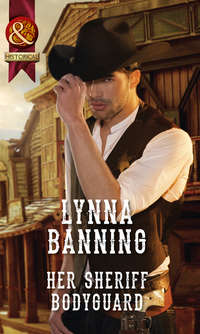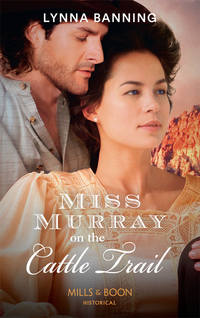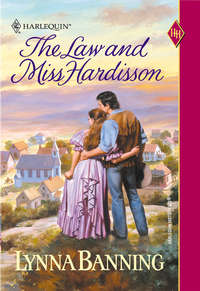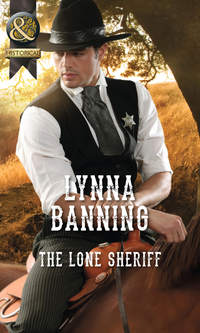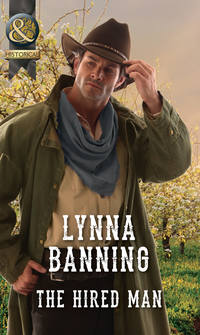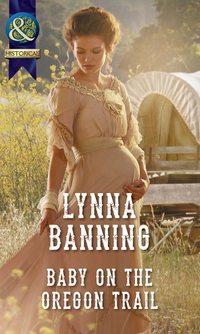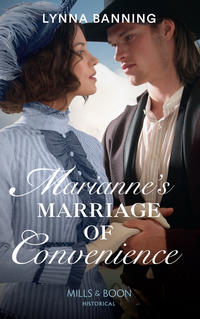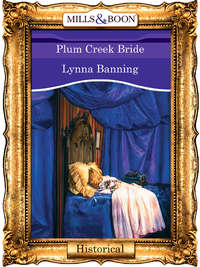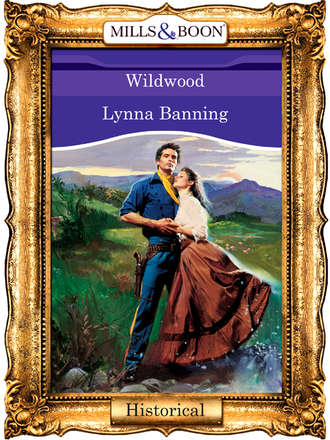
Полная версия
Wildwood
Ella Kearney yanked her daughter toward the door. “Good morning to you, Miss Whittaker.”
The bell jangled as the pair stepped out onto the board sidewalk. Alice cast a wistful backward glance at the candy case just as the door swung shut.
A broad, smiling man appeared behind the counter, good will beaming from his shiny face. “What can I do for you, ma’am? Maybe like some ginger drops? Young Miss Alice is usually my best customer, but this afternoon her mama too busy.”
“I’m Jessamyn Whittaker, and I need some kerosene to clean the printing press at the newspaper office.”
“Ah! You are the Miss Whittaker who comes from the East? I am Otto Frieder. My wife, Anna-Marie, is in the back. You wait.” He disappeared, then emerged from behind a curtained doorway with a plump, dimpled woman of about thirty in tow. “Anna-Marie,” he said with obvious pride.
The woman extended both hands past her distended abdomen and squeezed Jessamyn’s fingers. “We are so happy you come to Wildwood Valley.”
“I—Thank you, Mrs. Frieder.”
“We are much sorry about your father.”
“Thank you again.”
Anna-Marie immediately curved her palms over her belly. “Baby comes in just a few weeks,” she said with a shy smile. “Our first.”
Jessamyn looked into the round blue eyes of the woman facing her. How happy she looked. How eager for life. In just a few years the storekeeper’s wife would have three or four young ones hanging on to her skirts, and then she would look exhausted. Worn out, like Mama.
“About the kerosene, Mr. Frieder.”
“Ah, yes.” Otto turned toward the back of the store where oak barrels lined one wall. “Kerosene…kerosene,” he muttered. “Cigars…cartridges…nails…no kerosene. We just run out. Shipment is again late.”
“I will also need newsprint and ink for the paper.”
Otto sighed. “That I must order from Chicago—will take two, maybe three weeks.”
“Three weeks!”
“Maybe four, even. Come by train to Omaha, then by wagon over the mountains.”
Four weeks! Jessamyn groaned. That was a whole month! How could she publish a newspaper without ink and newsprint? If she was frugal, her father’s supply might last for one edition, but it would have to be a very short press run.
“I’m sorry, Miss Whittaker. Your papa, he was always running out of supplies. ‘Otto,’ he would say to me. ‘I need more ink, more newsprint.’ He kept on printing his paper, though. I never could figure how he did it.”
Anna-Marie made sympathetic clucking sounds.
Jessamyn’s spirits plummeted. Getting out her first issue would be more of a challenge than she’d thought.
Otto patted her hand. “I will get your supplies for you. There is else you need?”
“What? Oh, no, thank you, Mr. Frieder.” She tried to keep her disappointment from showing in her voice. No ink. No newsprint. No kerosene. How had her father managed?
Otto gestured to his wife. Anna-Marie made her way to the candy case, dug a tin scoop into a fat glass jar and poured the contents into a small brown paper sack. She handed it over the countertop. “No charge,” the young woman whispered.
Jessamyn smiled her thanks at the couple. Her mind churning, she left the store, snapped opened her parasol and stepped out into the late-afternoon sun. Deep in thought, she popped a candy into her mouth.
What would she do now? Papa had managed some way, but how? Jessamyn sucked on the gingery-tasting sweet and racked her brain. She was a Whittaker, she reminded herself. Like Papa. She wasn’t beaten yet. After all, a Whittaker never gave up.
But how could she clean the press? With her tongue she turned the gingery-tasting sweet over and over as she thought about the problem facing her.
First she’d need a substitute for kerosene. She rolled the candy drop around inside her mouth with the tip of her tongue. The sharp flavor surprised her, hot and sweet like spices and pepper mixed up together. It made her mouth burn. Her lips felt warm and sticky, as if she’d been sipping…
“Spirits!” she blurted aloud. She could clean the press with alcohol!
Where, she wondered as she marched along the board walkway, could she get alcohol?
Across the street the plunking of a tinny piano drifted out the open front door of Charlie’s Red Fox Saloon. Jessamyn halted midstride.
A saloon served alcohol, didn’t it?
She set her uplifted shoe down with a resounding thump and stepped off the walk into the street. With one hand she hitched her skirt up out of the dust and with the other tilted the parasol against the slanting sunlight. Head up, shoulders squared, she headed straight for the Red Fox.
The piano player’s spirited rendition of “The Girl I Left Behind Me” broke off the instant Jessamyn stepped past the swinging doors.
“Goshamighty,” a hushed male voice spoke into the silence. “A lady!”
Jessamyn lowered her parasol and gazed about the dim room. The place reeked of cigar smoke. The pungent scent of beer and strong spirits reminded her of the brewery a block from the Boston Herald office.
She moved with care among the rough wooden tables clustered with card players and cowhands with tanned faces and sweat-stained hats. Ignoring the hostile faces turning in her direction, she advanced to the polished oak bar.
The bartender, a pudgy, red-faced man with a soiled towel tucked in his belt, regarded her in silence for a full minute. Finally he signaled the piano player to resume and stepped toward her. He swiped the grimy cloth across the counter.
“Don’t allow women in here, miss.”
Jessamyn quailed at his tone. Summoning her courage, she straightened her back and spoke over the noise of the piano. “Oh, yes, you do. The sheriff told me about your fancy ladies-—that is the term? They are women, are they not?”
The bartender coughed. “Well, ma’am,” he began in a strangled voice, “women, maybe, but not—”
Jessamyn looked him straight in the eye. “Then just think of me as a customer. Not as a woman.”
“Kinda hard to do, seein’ as how you’re all fit out with them ladyfied duds.”
What did he say? Oh, he meant her clothes. Good heavens, didn’t anyone out here speak understandable English? Working to keep her voice calm, she replied, “Then shall I remove them?”
The man’s eyes popped. “No indeed, ma’am! I got enough trouble with Sheriff Kearney as it is. Now you just git along outta here. This ain’t no place—”
“Hold up there, Charlie,” a gentle, slightly raspy voice interrupted.
Jessamyn turned to face a stocky, muscular-looking man with limp, sun-lightened brown hair and skin tanned to the color of coffee diluted with a dollop of cream. Keen brown eyes looked steadily into hers from under the drooping brim of a shapeless brown felt hat.
“You refusin’ service to the lady?”
“Shore am, Jeremiah. An’ no deputy’s gonna tell me differ’nt.”
The deputy lifted the shotgun he carried. “Well, now,” he said without raising his voice. “Law says it’s illegal to steal horses.” He clunked the gun down onto the bar top. “Also illegal to serve rotgut whiskey or—” he cast an eye about the room, glanced from the stairs to the bartender and back again “—run a sportin’ house.”
He leaned both arms on the bar and laced his blunt fingers together. Jessamyn watched the back of one hand graze his gun stock.
“Dammit to hell, Jeremiah. Why don’t you mind yer own business.” The bartender slapped down his rag and swore again under his breath.
“Law is my business, Charlie. Now, I suggest you give the lady what she asked for.”
“Oh, hell’s bells. First it’s serve that Indian-loving sheriff, then it’s serve his Johnny Reb of a deputy and now it’s serve the lady. Dammit, back in Abilene—”
Jeremiah unlaced his fingers.
Charlie snatched up the bar rag. “Okay, Jeremiah. Okay.” He glanced at Jessamyn. “Just tell me what you want, ma’am, and then git.”
“I’d like a bottle of alcohol. Whiskey, I mean.”
Charlie’s thinning eyebrows rose. “Gawd, ma’am, a whole bottle?”
“Maybe two bottles. Big ones.”
The bartender gave her an odd look, dipped behind the counter, then straightened with a single quart of Child’s Whiskey in his meaty hand. “One bottle. Should last a little lady like you more’n a year. Mebbe two.”
“She said two bottles,” Jeremiah said quietly.
“Two! What in hell does she need two quarts of my best—”
“Isn’t none of our business,” Jeremiah interjected.
“It’s for my press,” Jessamyn blurted. She looked from Jeremiah’s placid, square face to Charlie’s round, florid one. “The printing press at the Wildwood Times office.”
“Huh!” The bartender spat onto the floor behind him. “Last time I looked, printin’ presses drank ink, not whiskey. Ain’t that so, Jeremiah?”
Jeremiah turned his chocolaty gaze on Jessamyn. After a long moment’s perusal, during which Jessamyn felt her cheeks flame and her nerve begin to fail, the man’s face creased into a wide grin.
“Whatever she wants is all right by me. Wouldn’t put nuthin’ past a lady who can write them elegant newspaper words. Make it two bottles, Charlie.”
Charlie clunked another quart of Child’s onto the counter.
“Thank you,” Jessamyn breathed. She sent the sheriff’s deputy a look of gratitude.
Jeremiah nodded, grabbed both bottles by the necks and reached for his gun.
“Hold up! I ain’t been paid yet.”
Jessamyn turned toward the bar. “How much do I owe—”
“Put it on my tab, Charlie.”
“Your tab! You nickel-nurser, since when do you have credit around here?”
“I guess maybe since right now. I kinda like the idea. ‘Sides,” the deputy breathed as he started toward the door, “the war’s over now. Reb money’s good as anybody else’s.”
He nodded a good-night and pushed through the swinging doors. Jessamyn had to skip across the floor to catch up with him.
“Thank you,” she panted. “I’ll repay you, of course. I’m Jessamyn Whittaker, Mr….?” She paused expectantly.
“Jeremiah, ma’am.”
“Jeremiah what?”
“Hull. But jes’ Jeremiah’ll do. Never had much need for a last name.”
Jessamyn pricked up her ears. “Why was that, Jeremiah?” Her reporter instincts told her his answer might be interesting, maybe even newsworthy.
Jeremiah shrugged. “Well, I kinda belonged to the plantation, you might say.”
Jessamyn blinked. “Belonged? You mean you were—”
“Oh, no, ma’am. Not a slave. My daddy was the overseer for Mr. Kearney. All of us—my mother and my brother and my sisters—we grew up on the Kearney plantation. When the war broke out, Mr. Ben, the colonel, joined his regiment. I joined up with him. We rode out the gate together, and I never looked back on that dogtrot house I was raised in ‘ceptin’ once.”
Jessamyn stared at him.
“Miss Whittaker, if you’ll just tell me where you want this whiskey…”
“Oh, yes, the whiskey!” She tore her gaze from Jeremiah’s no longer smiling face and stepped up onto the boardwalk in front of the newspaper office. “In here, please.” She bent to insert the key.
The lock stuck. She jiggled it three or four times before Jeremiah leaned his shotgun against the wall and stepped forward. He gripped the knob with his square fingers.
“Gotta lift up, Miss Jessamyn. Sometimes that lock gets the crotchets.” He gave a little nudge and the door swung inward.
Jessamyn set her parasol on the battered desk, turned and lifted the whiskey out of Jeremiah’s hands.
“I am in your debt, Jeremiah.”
“It’s gettin’ on toward suppertime. You gonna clean that press now?”
“I am. I live with Mrs. Boult. She’ll keep my supper waiting.”
“Mind if I stay and…help out? It’ll be full dark before you finish. I’ll just step over to the sheriff’s office an’ bring a coal lamp to see by.”
Jessamyn regarded the sheriff’s deputy with interest. Was he intrigued by the workings of the printing press? Or was he tactfully offering to stand guard over her?
Maybe both.
Part of her rebelled at the assumption that she needed protection. But another, larger part of her liked the fact that he was interested enough in the Wildwood Times to give up his evening and help her clean the press. Anyone who liked newspaper publishing was a potential friend. Jeremiah was a kindred spirit.
“Jeremiah, I’d be honored. Why don’t you stop by Mrs. Boult’s and ask her to pack up some supper and bring it over to the office? Tell her I said to include two plates. You will join me, won’t you?”
Without waiting for his answer, Jessamyn donned her work apron and rolled up her sleeves.
Chapter Four
Ben reined in the gelding on a hilltop so green with lush spring vetch it glowed like an emerald in the afternoon light. Land out here in the West wasn’t manicured as it had been in Carolina, at least the way he remembered it before Sheridan marched his marauding troops through. But this Oregon country was beautiful nonetheless. The late-day sun washed luminous fingers of light against the rolling greengold hills. His throat swelled into an ache.
Land, and the crops that could be grown on it, was more precious than gold. And the price more costly. All through history, lives had been laid down for possession of bits of earth. Sometimes he wondered if land—if anything—was worth fighting for. A war took everything a man had, sucked his spirit dry.
He gazed down at the farms and ranches spread over the wide valley below. From his vantage point, Ben picked out the southernmost pasture of the seven-thousand-acre Kearney spread—the one he’d bought after the war. After he’d gone home to North Carolina and found what that Yankee bastard Sheridan had done to the plantation and the life he’d known before.
After that he’d had no stomach for the North’s version of Reconstruction. There was nothing to do then but come out West and start over. He’d worked hard to build a new life.
When his brother, Carleton, later followed him to Oregon, Ben had turned the ranch over to him and his new bride and taken the position General Van Dyke at Fort. Umpqua had offered—Indian agent for the Klamath River tribes.
Carleton had been just old enough to join the militia when the war ended. He was inexperienced as a cattleman, but he learned fast. And Carl had a good wife to help him. His brother, Ben reasoned, would make a success of the ranch. He nodded approvingly at the fenced field of rye below him. Instead of cutting it for hay, in late summer Carl would turn his herd into the enclosure.
As usual, his sister-in-law had invited him to supper this Sunday. Ben’s gut wrenched. Suddenly the last thing he wanted to do was ride down off this hill and join his brother’s family. One evening of watching Ella, her face flushed from the heat of the woodstove in the stifling kitchen as she fussed and puttered around Carl, left Ben restless all the next week. The woman adored his younger brother. And it was just as obvious Ella was the most important thing in Carl’s life.
The most important thing in Ben’s hardworking, solitary life was Wildwood Valley. He knew his presence as sheriff made a difference to the ranchers and townspeople. If nothing else, his reputation as a marksman served as a deterrent to the drifters and unsavory riffraff that occasionally rode into town.
He’d been a good Indian agent, too. But by damn, sometimes he wanted something else, something he couldn’t even name. He wanted it so much it almost suffocated him.
He pulled on the gelding’s reins and turned the horse back toward town. A cold pit of despair yawned in his belly. It was going to be, as Jeremiah often remarked, another two-glass night.
He got as far as Carl’s south pasture on his way to the road when he glimpsed a tiny figure in a blue pinafore skimming over the grass toward him.
“Uncle Ben!”
Ben reined in the dark horse alongside the fence.
“Uncle Ben! Please, can I open the gate for you? Daddy says I’m too little, but I’m not! I can reach way up high. Please?”
Ben shook his head. “Not this time, honey. Tell your mama I’ve got some business in town.” He pulled a bag of penny candy out of his vest pocket and stretched his arm over the fence. “No need to tell her about these, though, is there?”
The child grinned and shook her head. Ben tipped his hat and headed toward the town road.
Jessamyn unbolted the press lever arm and lifted the platen cylinder away from the roller. “Well, would you just look at that,” she murmured. “Clean as a new penny.”
Except for a film of surface dust on the exterior of the black-painted casing, the press was immaculate, the joints and connections free of old grease and dirt. The moving parts had been polished to a shine.
She had to smile. Papa always insisted on keeping his press in perfect working order. Cleanliness, he joked, was right up there next to banner headlines. He wiped his equipment down after every press run.
Still, she wanted to run her hands over every inch of the imposing piece of machinery. The press belonged to her now. It was her responsibility to see to its maintenance. Resolutely she smoothed her starched white work apron and reached for the whiskey bottle and a clean rag.
Jeremiah kept her company while she worked over the huge machine, and then Cora arrived, their supper swinging in a wicker basket over one ample arm. “Here y’are, Miss Jessamyn. There’s plenty here, and more at the house iffen you want it.”
“Thank you, Cora. Will you stay and have some with us?”
The older woman shook her head. “I like my chicken hot, thanky. Mine’s warming in the oven, waitin’ for some pan gravy to go with it. Since you’ve got Jeremiah watchin’ over you, I’ll just go along to my supper.”
She bobbed her gray bun and headed toward the door. “Front door’s unlocked. Jes’ walk on in when you finish—” her china blue eyes took in the disassembled press “—whatever it is you’re doin’. Night, Jessamyn.”
Jeremiah politely held the door for her, and Cora bustled off down the board sidewalk, her solid footsteps reverberating against the pine planking.
Jessamyn corked the half-empty bottle of Child’s and wiped her hands on her apron. “Let’s have supper. I’m starving!”
The deputy declined her offer of a chair at her father’s desk. He ate his fried chicken and potato salad standing up, periodically checking up and down the street through the now-sparkling front window. “Mr. Ben’s gone out to the ranch for supper. I got to keep my eye peeled for any trouble in town.”
“Trouble?” Jessamyn spoke over a mouthful of flavorful potato salad. “What kind of trouble?”
“Just Saturday-night kinda trouble, Miss Jessamyn. Ranch hands in town for a little fun, maybe drink too much and bust up somebody’s head. But this here’s Sunday— won’t likely be any shootin’. That’s why the sheriff rides out Sundays to visit his kin.”
“His younger brother and his wife, is that right?” Jessamyn said. “I met his wife at the mercantile this morning.”
“Yes’m. Mr. Carleton and Miss Ella. An’ Miss Alice. There’s a fine-lookin’ child, ‘cept for her eyes.”
Jessamyn glanced up. “What about her eyes? They looked perfectly normal to me.”
Jeremiah hesitated. “Got her daddy’s eyes. Kinda hard and shifty-like sometimes. Got her momma’s nose and mouth, though. Guess she’ll be all right when she grows up some.”
Jessamyn laughed out loud. “Jeremiah, maybe you just don’t like children?”
“Mr. Ben grew up fine, he did,” Jeremiah countered. “Handsomest man I ever did see, even when we was young’uns. His eyes were different from Mr. Carleton’s, even then. ‘Course, they’re sadder now, since the war an’ all.”
Jessamyn came to instant attention. She needed some background on Ben Kearney for the newspaper article she planned to write. Here, standing before her, was a walking, talking firsthand source.
“What about the war, Jeremiah? Tell me about it—about you and the sheriff, I mean. About your experiences.” She bit into her second drumstick and waited as Jeremiah cleared his throat.
The town lay dark and quiet by the time Ben rode in past the livery stable. Crickets sang, their strident voices carrying over the occasional cry of a coyote. Heat rose from the dusty roadbed, the rich smell of honeysuckle and tobacco smoke drifting on the warm night air.
Ben slowed the horse to a walk. Nights like these made his groin ache. He wanted to yell or break something to ease the tension curling inside.
He needed a woman.
He’d settle for whiskey.
The Dixon House hotel and Charlie’s Red Fox glowed like Mississippi paddle-wheelers. The sheriffs office was dark. Jeremiah must be out keeping an eye on things.
He dismounted, tossed the reins over the hitching rail and pushed open the door to his office. Touching a match to the lamp wick, he watched the pool of golden light settle over the cat lazing on his desk. “Move over, Shiloh.” He lifted the boneless animal off the clutter of papers.
More mail. Maybe something that would provide a clue’ to Thad Whittaker’s murder.
And maybe not. So far, he’d run into nothing but dead ends. It shouldn’t be that difficult to figure out who wanted the outspoken editor of the Wildwood Times silenced, but with each batch of new communications, Ben’s investigation turned into a bigger ball of snakes. A corrupt Bureau of Indian Affairs administrator, shady railroad investors trying to outmaneuver each other, cattle rustled from valley ranches, Indians mad enough to smoke a war pipe. Ben ran his fingers through his hair and sighed. The war’s end hadn’t brought peace to the West. Far from it.
He scratched the cat under its chin until a throaty purr rumbled, then turned his rangy frame toward the open doorway. Maybe he’d leave the mail until morning and drop by the hotel for a steak and some of Rita’s baked beans.
Across the street, light glowed inside the newspaper office. He focused on the paned front window opposite him. Then again, maybe he’d just see what Miss Starched Petticoat was up to at this hour.
He lifted his Colt from the hook behind the door, strapped the revolver low on his hip and headed for the Wildwood Times’.
Jeremiah drew in a long breath and blew it out through pursed lips. “Can’t tell you all of it ‘bout the war, Miss Jessamyn. ‘Twouldn’t be fittin’. But some of it I can.” He cocked his head to one side. “Yes’m, some of it I surely can tell you.”
Jessamyn stopped chewing and listened.
“Mr. Ben and me, we went to war together, like I said. I was his aide-de-camp. Mostly I just do for him like his manservant always done in Carolina—wash his shirts, shine up his boots, be sure he takes time to eat. He was awful busy in the war—had near two regiments to command after the other colonel got himself killed. Mr. Ben got his horse shot out from under him twice at Shiloh. Madder’n a hen caught in the creek, he was.” Jeremiah grinned at the memory.
Jessamyn resisted the impulse to reach into the desk drawer for her pencil and writing pad. Rather than interrupt Jeremiah, she’d commit the important parts to memory.
“How did he get that scar on his neck?” she prompted.
The deputy’s grin faded. “He doesn’t like to talk about it much. He took a minié ball. Tore into his chest and mangled him pretty bad up to about here.” He tapped his throat with a chicken bone.
“The surgeon didn’t fix it quite right, and it festered. Woulda been all right cept’n he was captured at Vicksburg and sent to a Northern prison. They had to cut it open to drain it and then sew him up again.”
Horrified, Jessamyn stared at the deputy. “You mean it was a Yankee doctor who—”
Jeremiah nodded. “Fought like a son of a—Oh, ‘scuse me, Miss Jessamyn. Weren’t any use, though. I saw it had to be done. Otherwise, it’d have the gangrene in it.”
Jessamyn’s appetite vanished. “Oh, how awful.”


